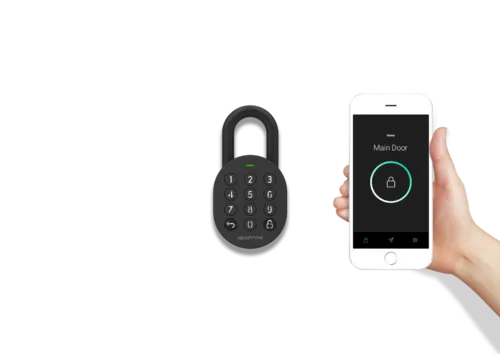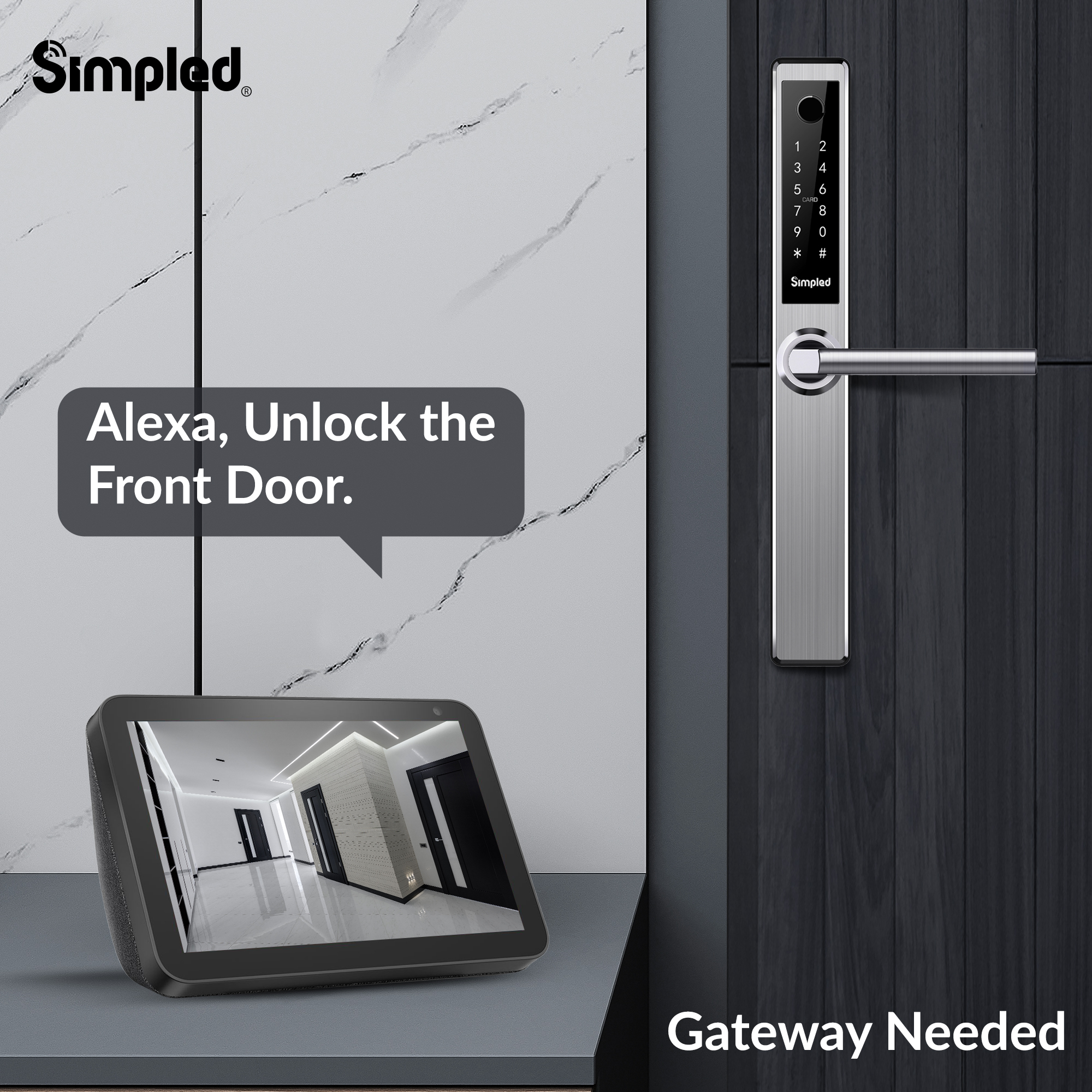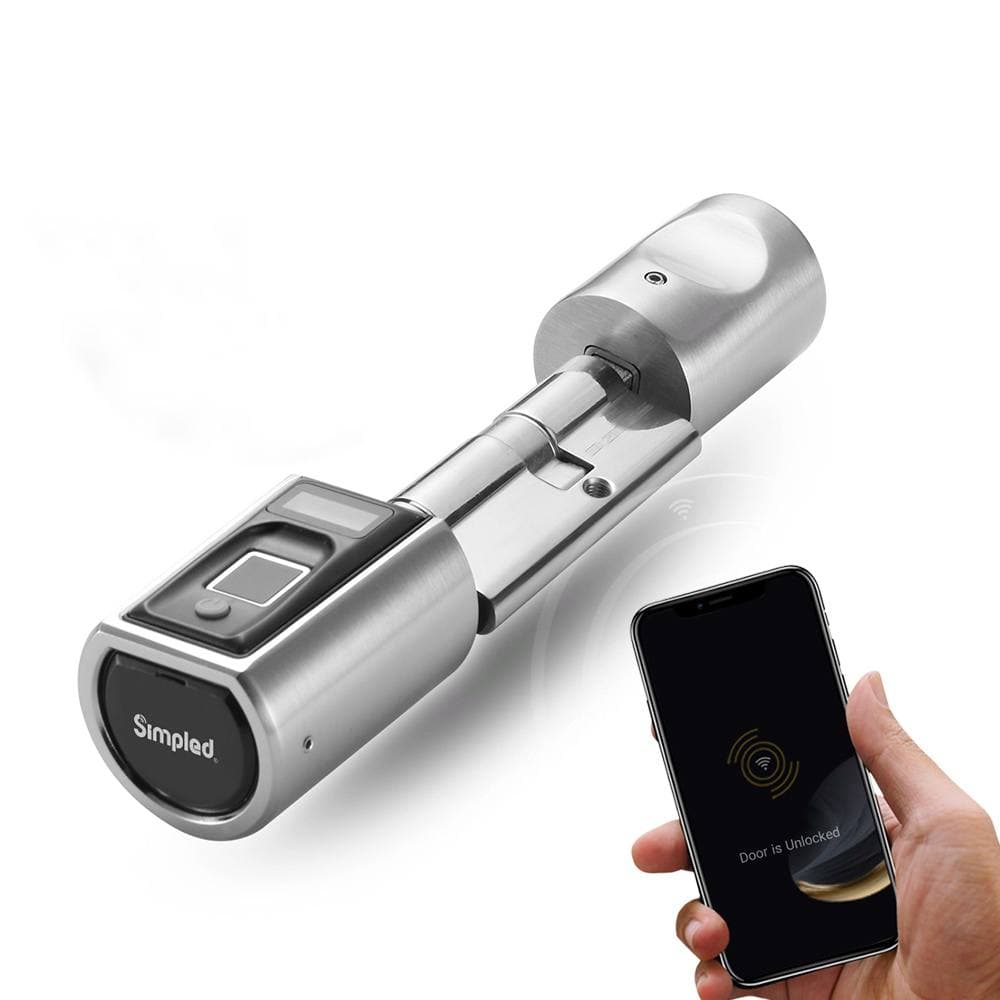Smart Locks vs Traditional Locks Which is Better for Your Home

Introduction Smart Locks vs Traditional Locks Which is Better for Your Home
The security of your home is a top priority for any homeowner. With technological advancements, smart locks have become a popular alternative to traditional locks. Smart locks are designed to provide enhanced security measures, greater convenience, and accessibility. In contrast, traditional locks offer a more straightforward approach to home security.
Smart locks use advanced technology to provide keyless entry options, temporary access codes, and remote monitoring capabilities. These features allow homeowners to monitor their homes and control access from anywhere. Traditional locks rely on physical keys that can be easily lost or duplicated.
While smart locks offer advanced security features, they tend to be more expensive than traditional lock systems. Traditional lock systems are simple, making them cost-effective for homeowners who want basic home security.
Choosing between smart and traditional locks ultimately depends on personal preference and budget. Smart locks offer advanced security features and greater convenience but are more expensive. Traditional lock systems offer basic home security measures at a lower cost. Regardless of which option you choose, it's essential to prioritise the security of your home and invest in a system that meets your needs.
Convenience and Accessibility with Smart Locks
Smart locks offer greater convenience and accessibility compared to traditional locks. With the ability to use a smartphone app or voice commands for access, homeowners can control their locks from anywhere at any time. Remote locking and unlocking features allow for easy access to the home without the need for physical keys.
Guest access codes also provide temporary access to family members, friends, or service providers without physical keys. Homeowners can create unique codes for each guest and monitor their activity through the smart lock system.
Activity monitoring capabilities provide homeowners with real-time updates on who is entering or leaving their homes. This feature lets homeowners know who can access their homes and when.
Overall, smart locks offer greater convenience and accessibility than traditional lock systems. With advanced features such as remote locking and unlocking, guest access codes, and activity monitoring capabilities, homeowners can enjoy greater peace of mind knowing their homes are secure and accessible at all times.
Security Features of Smart Locks

Smart locks offer a higher security level than traditional locks due to their advanced technology. The inability to duplicate keys reduces the risk of unauthorised entry into the home. This feature gives homeowners greater peace of mind knowing their homes are secure and protected.
Smart locks also offer an autolocking feature for added security. This feature ensures that the door is automatically locked after a certain period, reducing the risk of leaving the door unlocked accidentally. The ability to remotely lock or unlock the door also provides greater convenience and accessibility while maintaining high security.
Another significant security feature of smart locks is their ability to send real-time alerts to homeowners when someone enters or leaves their homes. This feature allows homeowners to monitor who has access to their home and when providing an additional layer of security.
Overall, smart locks offer advanced security features that give homeowners greater peace of mind knowing their homes are secure and protected. With features such as keyless entry options, autolocking, and real-time activity monitoring, smart locks provide a comprehensive solution for home security.
Affordability Comparison between Smart Locks and Traditional Locks
Regarding affordability, traditional locks are generally more cost-effective than smart ones. Traditional lock systems are simple, making them cost-effective for homeowners who want basic home security. In contrast, smart locks are more expensive due to their advanced technology and additional hardware requirements.
The cost of a smart lock system can vary depending on factors such as installation costs, additional hardware requirements, and the level of security features included. Some smart lock systems require professional installation, which can add to the overall cost. However, many smart lock systems are designed for easy installation and can be installed by homeowners themselves.
While smart locks may have a higher initial cost than traditional lock systems, they offer greater convenience and accessibility that can lead to long-term cost savings. For example, with keyless entry options and remote monitoring capabilities, homeowners can avoid the cost of replacing lost keys or hiring a locksmith to change their locks.
While traditional locks may be more affordable than smart locks, the decision ultimately comes down to personal preference and budget. Smart locks offer advanced security features and greater convenience that can lead to long-term cost savings. Regardless of which option you choose, it's essential to prioritise the security of your home and invest in a system that meets your needs.
Durability in Extreme Weather Conditions
Smart locks are designed to withstand harsh weather conditions like heavy rain or snowfall. They are typically made with durable materials that withstand extreme temperatures and moisture. In comparison, traditional locks may be more susceptible to damage in similar weather conditions.
Smart locks often have a weather-resistant rating that can withstand various weather conditions. This rating is based on temperature range, humidity, and water resistance. Homeowners should always look for smart locks with high weather-resistant ratings to ensure longevity in harsh weather conditions.
In contrast, traditional locks may be more prone to rusting or freezing in extreme weather conditions, which can compromise their security features. This can lead to the need for frequent replacement or repair of traditional lock systems.
Overall, smart locks offer greater durability in extreme weather conditions compared to traditional lock systems. With their advanced technology and durable materials, smart locks provide homeowners with reliable home security solutions that can withstand even the harshest of weather conditions.
Compatibility with Other Devices
Smart locks are designed to integrate seamlessly with other smart home devices, making them a convenient and versatile addition to any home. These locks can be easily connected to virtual assistants like Amazon Alexa or Google Assistant, allowing homeowners to control their locks using voice commands.
In addition to virtual assistants, smart locks are compatible with other smart home devices, such as security cameras, thermostats, and lighting systems. This integration allows for a more comprehensive home automation system that can be controlled from a single device or app.
The ability to integrate with other smart home devices also provides homeowners with greater control over their home security. For example, when a smart lock is integrated with a security camera system, homeowners can monitor who is entering or leaving their homes in real time. This feature provides an additional layer of security and peace of mind.
Overall, the compatibility of smart locks with other smart home devices provides homeowners with greater convenience and control over their homes. With the ability to connect to virtual assistants and other smart devices, smart locks offer a comprehensive solution for home automation and security.
Maintenance Requirements for Smart Locks vs Traditional Locks

Smart locks require firmware updates to ensure that they are running the latest software and security patches. These updates typically occur automatically, but homeowners may need to manually update their smart lock systems occasionally. Smart locks also require batteries to power their electronic components, which may need to be replaced periodically.
In contrast, traditional locks require little maintenance beyond occasional lubrication of the locking mechanism. Traditional lock systems do not require firmware updates or batteries, making them a low-maintenance option for homeowners who prefer a simple and straightforward approach to home security.
Overall, smart locks may require more maintenance than traditional lock systems due to their electronic components and firmware updates. However, the added convenience and security features offered by smart locks often outweigh the maintenance requirements associated with these systems. Homeowners should weigh the pros and cons of each system carefully before deciding which option is best suited for their needs.
Power Supply Needs
Smart locks require a power supply to operate their electronic components. Most smart lock systems are powered by batteries, which may need to be replaced periodically. Some smart lock models offer backup power options, such as the ability to use an external battery pack or connect to a power source in the event of a battery failure.
On the other hand, traditional lock systems do not require any electricity to operate. They rely solely on mechanical components and do not have any electronic parts that require power. This makes them a reliable option for homeowners who live in areas with frequent power outages or who prefer a low-tech solution for home security.
Overall, smart locks offer greater convenience and accessibility than traditional lock systems due to their electronic components and advanced technology. However, they require a consistent power supply to operate, which can be a potential drawback in areas with unreliable power sources. Traditional lock systems offer a low-maintenance and reliable option for homeowners who prefer a simple and straightforward approach to home security.
Vulnerabilities Associated With Each System
Smart locks are generally considered to be more vulnerable to hacking risks than traditional lock systems. Some smart lock models use wireless communication protocols that may be susceptible to interception or hacking, which can compromise the security of the lock system. However, many modern smart locks use advanced encryption and security features to protect against these vulnerabilities.
On the other hand, traditional lock systems are vulnerable to physical break-ins through picking techniques commonly used on standard pin-tumbler cylinder-based door locks. These techniques involve manipulating the pins inside the lock mechanism to open the lock without a key. While these methods require some skill and knowledge, they are widely known and can be easily learned by potential intruders.
Overall, both smart locks and traditional lock systems have their vulnerabilities and risks. Smart locks offer advanced security features that protect against hacking and unauthorised access, but they require a consistent power supply and may be vulnerable to certain types of wireless communication risks. Traditional lock systems offer reliable physical security but are susceptible to picking techniques that can compromise their effectiveness. Homeowners should weigh the pros and cons of each option carefully before deciding which system is best suited for their needs.
Granting Access from Anywhere
One of the key advantages of smart locks is the ability to grant remote access via an internet connection. This feature is offered by certain types, models, brands, and smart lock providers, allowing homeowners to grant access to their homes from anywhere in the world using a smartphone or other internet-connected device.
In contrast, traditional lock systems do not offer this level of convenience and accessibility. Homeowners must be physically present to grant access to their homes, which can be inconvenient and time-consuming.
The ability to grant remote access via an internet connection is particularly useful for homeowners who frequently have guests or service providers visiting their homes. With a smart lock system, homeowners can easily grant temporary access codes or virtual keys to these individuals without the need for physical keys or in-person meetings.
Overall, the ability to grant remote access via an internet connection is a significant advantage offered by smart lock systems. This feature provides greater convenience and accessibility than traditional lock systems, making it a popular choice for homeowners who value flexibility and control over their home security.
Installation and Setup Requirements
Smart locks require additional hardware installation or integration with other smart home devices to achieve full functionality, depending on the model and brand. Some smart lock systems require a separate hub or bridge device to connect to the internet and allow for remote access, while others may require integration with a larger smart home system. This can add complexity to the installation process and may require professional installation in some cases.
In contrast, traditional lock systems have a straightforward installation process that does not require any additional hardware or integration with other devices. Homeowners can easily install these locks themselves using basic tools and hardware.
Overall, the installation and setup requirements for smart locks vary depending on the model and brand. While some smart lock systems may require additional hardware or integration with other devices, others offer a simple plug-and-play setup process. Traditional lock systems offer a low-maintenance option that is easy to install without any additional equipment or expertise required.
Final Thoughts Which is Better for Your Home?
When it comes to choosing between a smart lock and a traditional lock system, there are several factors to consider. Smart locks offer advanced technology and convenient features like remote access, but they may require additional hardware installation and are vulnerable to certain hacking risks. Traditional lock systems are reliable and easy to install, but they lack the advanced features of smart locks.
Ultimately, the best option for your home will depend on your specific needs, preferences, and budget constraints. If you value convenience and accessibility, a smart lock system may be the right choice for you. However, if you prioritise physical security and simplicity, a traditional lock system may be a better fit.
It's important to carefully research different models and brands of both smart locks and traditional lock systems before making a decision. Consider factors like installation requirements, security features, and ease of use to determine which option is best suited for your home. By doing so, you can ensure that your home is secure and protected in the way that works best for you.
